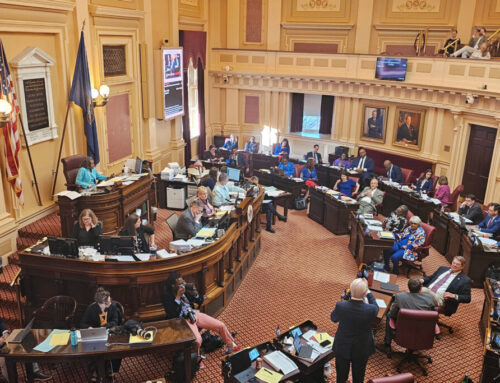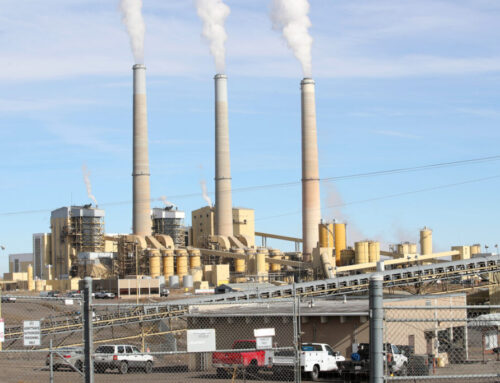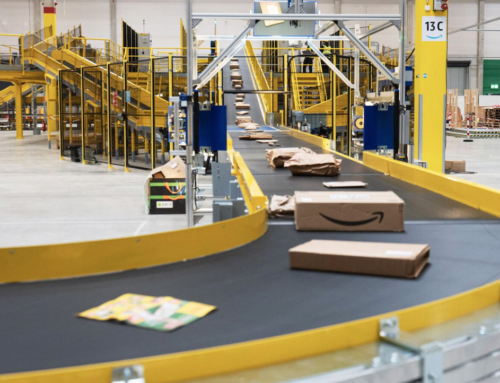Marijuana industry high on Trump promise to lift pot restrictions
January 6, 2025
WASHINGTON — The nation’s marijuana industry is optimistic that President-elect Donald Trump will take steps to legalize pot on the national level, but some who hope to develop the industry in Minnesota say that could severely hamper their efforts.
Why? Because the state’s nascent marijuana industry would have to compete for market share with growers in more established states who would be able to, for the first time, sell their products across state lines if the federal government no longer considers cannabis an illegal drug.
“It would decimate it,” Shawn Weber, president of the Minnesota Cannabis Growers Cooperative and Industry Council, said of state efforts to develop a marijuana industry.
Legalizing marijuana at the federal level would be a boon for individuals in the 26 states that have not legalized recreational use of cannabis and want access to the product. And competition for customers is likely to bring down prices in all states if federal restrictions are lifted.
“From a consumer standpoint, (federal legalization) is a good thing; you’d have product for next to nothing,” Weber said.
During his campaign for the White House, Trump said that, like President Joe Biden, he supports plans to begin to take federal restrictions off marijuana, rescheduling cannabis into a category of controlled substances that have an accepted medical use and only a moderate-to-low potential for dependence.
Minnesota’s efforts to regulate cannabis use could be impacted by such a change. So would the state’s efforts to distribute “social equity licenses” that would prioritize business applications from people who have been harmed by marijuana prohibition.
And Minnesota’s “immature industry would be flooded by mature industries” from other states as federal restrictions on interstate commerce disappear, Weber said.
Yet Carol Moss, an attorney with the Edina-based Hellmuth & Johnson law firm who represents the cannabis industry, said federal legalization of pot “would be more good than bad” because it would lift restrictions that have hurt the industry.
Those include barriers to bank loans and the inability to take the same federal tax deductions of other businesses, since the Internal Revenue Service considers the marijuana trade an illicit business, even as 24 states have legalized the sale and use of cannabis for recreational purposes.
Moss said she has clients who could not declare bankruptcy to discharge their debts because of the federal government’s current stance on marijuana. While that would change with federal legalization, Moss said she’s taking predictions that Trump would move to do so “with a grain of salt.”
“We’ve seen Trump go back and forth on the same day on this issue,” Moss said.
Taking steps toward legalization
Trump supports moving marijuana from a Schedule I substance, which includes heroin and other opioids, to a Schedule III drug, which includes Tylenol with codeine and anabolic steroids. Reclassifying marijuana would acknowledge its medical value, ease the business tax burden and open the door to interstate commerce.
Congressional hearings to reclassify marijuana as a Schedule III substance are scheduled the day after Trump’s Jan. 20 inauguration.
Trump also campaigned on providing banking access to the cannabis industry and supported a ballot initiative in Florida that would legalize recreational use in the state. Despite Trump’s support, that initiative failed.
Trump’s candidates for jobs in his administration that would have a role in regulating marijuana have differing stances. His choice for attorney general, Pam Bondi, opposed the state’s efforts to legalize medical marijuana. But his first pick for that job, former Rep. Matt Gaetz, who declined the job under pressure from a House ethics investigation, supported legalizing pot.
Meanwhile, Trump’s candidate to head the Department of Health and Human Services, Robert F. Kennedy, Jr., is pro-cannabis and psychedelics.
And Trump’s first choice to head the Drug Enforcement Agency, Florida Sheriff Chad Chronister, supports the federal legalization of marijuana. But Chronister pulled himself from consideration for the job after a backlash from some conservatives, who denounced his arrest of a pastor of a megachurch during the pandemic who held services for hundreds of people and violated a stay-at-home order aimed at limiting the spread of the coronavirus.
Trump is limited in what he could do under his authority to roll back federal restrictions on marijuana and would need Congress to advance new banking and federal medical cannabis regulations, which would be steps toward legalization. Marijuana advocates say those steps are feasible.
So, the nation’s marijuana industry is busily lobbying the incoming Trump administration and members of Congress, hoping Trump will keep his campaign promise to build on what Biden has done.
To help persuade the White House and lawmakers, the U.S. Cannabis Council has hired Bryan Lanza, who served as communications director for the president-elect’s first transition team, to lobby on its behalf.
Marijuana advocates also know Trump is keenly aware of growing populist support for the legalization of marijuana. In October 2023, Gallup found that 70% of Americans support “making marijuana use legal” — more than double the level of support in 2000.
Federal law will trump state laws
Unlike California, Colorado, Maryland and other states that had robust medical marijuana industries before they legalized the recreational use of pot, Minnesota’s medical marijuana policies were very restrictive. There were only two cannabis dispensaries in the state when the Legislature voted to legalize recreational use in the state.
That has allowed state residents to grow small amounts for personal use since August 2023. But developing a full-fledged cannabis business in the state has been slow, with regulations on the industry yet to be finalized and a lottery that would distribute licenses for growers and retail dispensaries delayed until well into next year because of a lawsuit filed by applicants disputing their denials.
Besides the lack of a healthy medical marijuana industry in the state, Josh Collins, spokesman for the Minnesota Office of Cannabis Management, said there was another reason the state could not “flip the switch” and allow immediate sales of cannabis once it was legalized.
That’s because Minnesota wanted to create a “craft industry” that addressed social equity issues, Collins said.
He also said it’s unclear how Minnesota’s “robust regulatory framework” regarding cannabis would be impacted by moves in Washington, D.C., toward federal legalization.
Federal law usually supersedes state laws, but in some cases state laws can prevail if they are more stringent.
So Collins said “it would be surprising if some elements of state control would not be preserved.”
For now, he said, Minnesota will continue with its plans. “At this point we are moving forward with our regulatory framework,” he said.

Ana Radelat is MinnPost’s Washington, D.C. correspondent. You can reach her at aradelat@minnpost.com or follow her on Twitter at @radelat.
Search
RECENT PRESS RELEASES
Related Post




